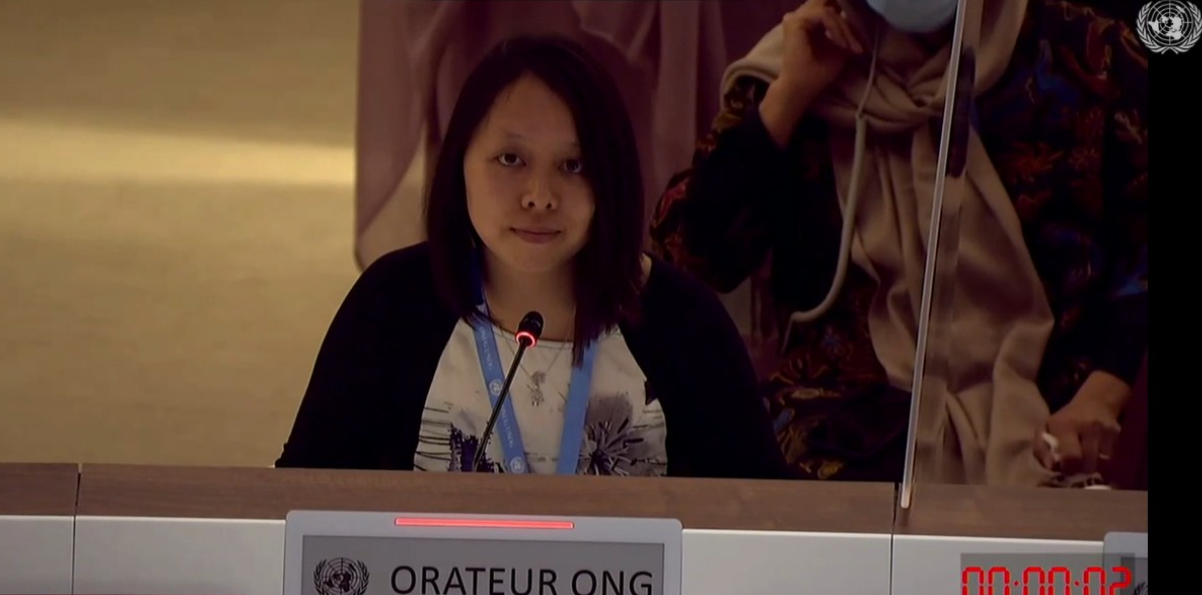
On March 14, Peace Brigades International’s advocacy coordinator Kim-Mai Stéphanie Vu presented to the United Nations Human Rights Council in Geneva, Switzerland during an Interactive Dialogue with the Special Rapporteur on the right to food.
She stated:
“We welcome the Rapporteur’s report and share his concern about the concentration of power entrepreneurship in food systems and the vulnerability of the peasantry.
Honduras
In Honduras, the changes in agrarian policy approved during the pandemic have aggravated the food crisis, making invisible the demands of the peasant populations. the executive decrees on the management of water sources and access to land, especially in the indigenous territories and protected areas, have raised the concern of civil society since suppose a re-concentration of land and natural resources in the hands of the great landowners and large agro-export companies.
As we salute the recent cancellation by the Honduran government of open pit mining throughout the territory and the declaration of unconstitutionality of the Law for the Protection of Plant Varieties, known as the ‘Monsanto Law’ that prohibited farmers from keeping, exchange and give away seeds, it is urgent that the peasantry can participate in the elaboration of the agrarian policies of the country.
Colombia
In Colombia, an extremely unequal country with a high concentration of land, the right to food, especially for indigenous, Afro-descendant and peasant peoples and communities, is subsequently affected by the humanitarian crises that are shaking the country: massacres, persistence of paramilitary structures and armed conflicts between various legal and illegal armed groups, have generated the displacement and forced confinement of more than 120,000 people in 2021 and seriously affected their right to food: an example of this are the ethnic communities of the Pacific (particularly Chocó and the rural area of Buenaventura, Valle del Cauca).
Likewise, the lack of progress in the integral rural reform, foreseen in the Peace Agreement, the insufficiency of prevention and protection measures, little or no response to Early Alerts and the absence of state civil institutions in the territories, completely leave unprotected communities without their basic rights satisfied. Humanitarian agreements global, requests by ethnic communities and the international community itself should be implemented now.”
The video of this presentation can be seen here (starting at the 51:00 minute mark).

